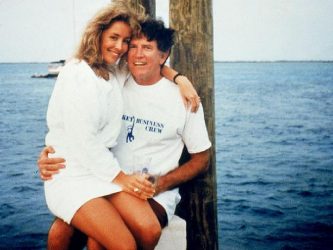
Yesterday, I posted a lengthy review of Jason Reitman’s “The Front Runner,” with Hugh Jackman as Gary Hart, whose presidential aspirations were derailed when the press covered his personal indiscretions. But I left out three points, so I’ll cover them today:
If you see the movie and wonder why Reitman didn’t show the now-iconic photo of Rice on Hart’s lap during their ill-fated trip to Bimini on a boat called The Monkey Business, there’s a simple reason: the photo didn’t appear until a couple of months after he’d left the race, and thus outside the time period covered on screen.
When “The Front Runner” was shown a couple of weeks ago during the St. Louis International Film Festival, Reitman was here and did a Q&A afterwards. I noticed that among the song credits at the end of the movie, it said that Vera Farmiga (as Lee) had played a piano piece called “Tarantella” in one scene. I asked Reitman if that had already been in the script and Farmiga had learned it for the movie, or if he’d added it because he discovered her piano-playing talents. He replied it was the latter. In fact, he continued, before letting Farmiga play it on camera, he’d instructed the crew to not tune the piano in the house they’d rented for those scenes, so it wouldn’t sound too perfect.
The movie is based on Matt Bai’s “All The Truth Is Out: The Week The News Went Tabloid.” In 2014, Bai was promoting the book on “The Daily Show,” when Jon Stewart asked him, “Do you think there are people of substance who could have done this country great things, who we will never know about because of the corrosive nature of our politics?” Bai’s answer was so perfect that even Stewart was taken aback at its brilliance:
I do, Jon. I’ve been covering national politics for 15 years. I’ve covered 4 presidential campaigns. I do think we lose people who don’t want to put themselves through this unendurable process or put their families through it. I think we drum good people out of politics who are defined by the single worst thing they’ve ever done as opposed to the context of their public lives. And I think we make it much, much easier for people who have no business holding office to enter the process, because when you’re not talking about ideas and worldviews and agendas, when you’re talking about character and personality, it makes it very easy for someone to float through the process without ever having to explain themselves or demonstrate what they know.
